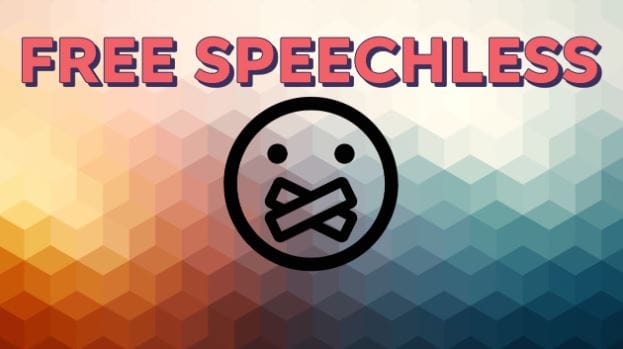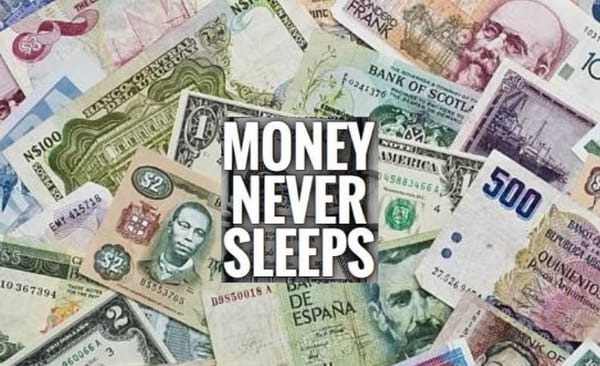Free Speechless
The decision to ban TikTok, followed by the meteoric rise of RedNote as an alternative, has reignited debates over free speech, data privacy, and national security. These issues are not new—they are echoes of past struggles for freedom of expression, amplified in the digital era.

The principle of free speech has been a cornerstone of democratic societies, evolving through centuries of philosophical thought, legal battles, and societal shifts. In the digital era, platforms like TikTok and X (formerly Twitter) have transformed how we exercise this freedom, introducing new complexities and challenges. As the United States stands on the brink of implementing a nationwide TikTok ban, we find ourselves at a pivotal moment in the ongoing struggle for free speech in the digital age. This situation echoes centuries of debate over the limits and importance of free expression, dating back to ancient Athens.
he U.S. ban on TikTok was driven by national security concerns, particularly fears that its Chinese parent company, ByteDance, could share American user data with the Chinese government. While framed as a security measure, critics raised concerns about its implications for free speech:
- A Platform for Voices: TikTok became a space for creative expression, political activism, and community building, particularly among younger generations. Banning it silenced these voices, leading to accusations of government overreach.
- Selective Action: Critics questioned why TikTok was targeted while other platforms with privacy issues were not, suggesting a politically motivated agenda.
The decision to ban TikTok in the United States, followed by the meteoric rise of RedNote as an alternative, has reignited debates over free speech, data privacy, and national security. These issues are not new—they are echoes of past struggles for freedom of expression, amplified in the digital era. By exploring the history of free speech and its evolution, we can better understand the implications of these events and their lessons for future generations.
The Rise of RedNote: An Ironic Twist
With TikTok banned, millions of users migrated to RedNote (Xiaohongshu), a Chinese-owned platform with similar features. This move highlights the irony and unintended consequences of the ban:
- Freedom of Choice: By banning TikTok, the U.S. arguably restricted users' freedom to choose their platform.
- Privacy Concerns Persist: RedNote, like TikTok, operates under Chinese jurisdiction, raising the same privacy and surveillance concerns.
- Content Censorship: RedNote is known for strict content moderation aligned with Chinese government policies, potentially exposing American users to new limitations on free speech.
Comparing RedNote to TikTok
While both apps originate from China, there are significant differences that make RedNote potentially more concerning from a U.S. national security perspective:
- Data Storage: TikTok had made efforts to store U.S. user data on U.S.-based servers, providing some level of oversight. RedNote, however, was never intended for markets outside China, and all data is likely stored on Chinese servers
- Terms and Conditions: RedNote's terms are primarily in Mandarin, making it difficult for non-Chinese speaking users to understand what they're agreeing to
- Censorship: RedNote appears to be much more heavily censored than TikTok. Searches for politically sensitive terms like "Xi Jinping" or "Free Hong Kong" yield no results on RedNote, while TikTok allows for a range of political opinions
- Algorithm: RedNote's algorithm is designed differently from TikTok's, potentially suppressing politically or socially sensitive content, especially issues sensitive in China
The Irony and Risks
The migration of American users to RedNote presents several ironies and risks:
- Increased Data Exposure: By moving to RedNote, Americans are potentially exposing themselves to even greater data collection by Chinese entities
- Circumventing the Ban's Intent: Users are essentially defying the government's attempt to protect their data by willingly joining a platform with potentially greater risks
- Cultural Exchange vs. Security: While the influx of American users on RedNote has led to unprecedented direct communication between Chinese and American users, it comes at the cost of potential security risks
- Censorship Exposure: American users accustomed to relatively free expression on TikTok may find themselves subject to stricter content moderation on RedNote
The RedNote phenomenon highlights the challenges of regulating international social media platforms in an interconnected world. It demonstrates that users will find ways to connect across borders, even if it means potentially compromising their data security. U.S. officials have already indicated that RedNote could face similar scrutiny and potential bans as TikTok. This situation underscores the need for a more nuanced approach to addressing national security concerns while respecting users' desires for global connectivity and cultural exchange
The Roots of Free Speech
The concept of free speech has deep historical roots, stretching back to ancient Greece. In Athens, around 508 BCE, the principles of "isegoria" (equality of speech) and "parrhesia" (uninhibited speech) emerged as cornerstones of the world's first democracy. These concepts allowed all free male citizens to speak openly in the assembly, laying the groundwork for modern notions of free expression.
The Evolution of Free Speech in America
The United States enshrined free speech protections in the First Amendment, ratified in 1791. James Madison, the primary architect of this amendment, initially proposed: "The people shall not be deprived or abridged of their right to speak, to write, or to publish their sentiments; and the freedom of the press, as one of the great bulwarks of liberty, shall be inviolable." This language evolved through debate and compromise, ultimately resulting in the familiar text we know today.
Historical Challenges to Free Speech
Throughout history, free speech has faced numerous challenges. One notable example is the Sedition Act of 1798, which criminalized criticism of the U.S. government. This act, much like the current TikTok ban, sparked intense debate about the limits of governmental power and the importance of protecting dissenting voices
Historical Parallels: Lessons from the Past
1. The Printing Press and Digital Platforms
- Just as governments tried to control the spread of information via printing presses, today’s governments seek to regulate digital platforms.
- The printing press democratized knowledge, but its misuse also led to disinformation—much like social media today.
2. Cold War Censorship and Modern App Bans
- The Cold War era saw ideological suppression in the name of national security, a parallel to modern bans like TikTok.
- Both raise the question: Does restricting one medium of expression inadvertently stifle innovation and dissent?
3. Civil Rights Movement and Platform Power
- Platforms like TikTok empowered marginalized voices, much like the public squares and rallies of the Civil Rights Movement.
- Banning such platforms risks silencing these communities and undermining progress.
The Digital Age and New Frontiers of Speech
The rise of social media platforms like TikTok has introduced new complexities to the free speech debate. These platforms have become modern-day public squares, where ideas are shared globally at unprecedented speeds. The TikTok ban raises questions reminiscent of historical speech restrictions: How do we balance national security concerns with the right to free expression?
The evolution of free speech in the digital age has been significantly influenced by tech moguls and platform owners, with Elon Musk's acquisition and transformation of Twitter (now X) serving as a prominent recent example. This situation echoes historical figures who have shaped our understanding of free expression.
Elon Musk and X: A Modern Free Speech Saga
Elon Musk's journey with X (formerly Twitter) began with a promise of championing free speech. Upon acquiring the platform in October 2022, Musk declared his intention to make it a bastion of free expression. However, his actions since then have painted a complex and often contradictory picture:
- Reinstating Banned Accounts: Musk quickly reinstated previously suspended accounts, including those of Donald Trump and Alex Jones
- Increased Suspensions: Paradoxically, under Musk's leadership, X has suspended over 5.3 million accounts in the first half of 2024, more than four times the number Twitter ever suspended in similar periods
- Government Compliance: Despite his "free speech absolutist" stance, Musk has complied with government requests for account takedowns in countries like Brazil, Turkey, and India
- Political Amplification: Musk has increasingly used X to amplify his own political views and those of right-wing figures, potentially creating an echo chamber effect
Historical Parallels
Musk's actions and the resulting controversies draw parallels to historical figures who have shaped free speech debates:
- John Stuart Mill: The 19th-century philosopher advocated for absolute freedom of opinion and sentiment, arguing that silencing dissenting views robs humanity of potential truths.
- Justice Oliver Wendell Holmes Jr.: His concept of the "marketplace of ideas" in the early 20th century emphasized that the best test of truth is its ability to get accepted in the competition of the market.
- Mario Savio: Leader of the Free Speech Movement at UC Berkeley in the 1960s, Savio fought for the right of students to engage in political speech on campus.
Meta's Shift in Content Moderation: From Fact-Checking to Free Expression
In early January 2025, Meta Platforms, led by CEO Mark Zuckerberg, announced significant changes to its content moderation policies across Facebook, Instagram, and Threads. These changes include discontinuing the company's fact-checking program in the United States and replacing it with a "Community Notes" system, similar to the approach used by Elon Musk's X platform. This shift transfers the responsibility of identifying and flagging potentially misleading content from professional fact-checkers to the user community.
Additionally, Meta has relaxed certain hate speech policies, now permitting content that characterizes LGBTQ+ identities as mental illnesses under the guise of promoting "free expression." This policy change has sparked internal dissent among employees and raised concerns among advertisers about the potential increase in harmful content and misinformation on the platform.
Critics argue that these policy shifts are a response to political pressures, particularly with the incoming administration. Michael McConnell, co-chair of Meta's Oversight Board, criticized Zuckerberg's decision, suggesting it was an attempt to align with President-elect Donald Trump, who has previously accused social media platforms of anti-conservative bias.
These developments have led to a broader discussion about the role of social media platforms in moderating content and the balance between free expression and the spread of misinformation. As Meta navigates this new approach, the implications for user experience, advertiser relationships, and societal impact remain to be seen.
The Evolving Landscape of Digital Free Speech
The challenges faced by X and Musk highlight the complexities of managing free speech in the digital age:
- Content Moderation: The struggle to balance free expression with the need to curb misinformation and hate speech remains a central issue
- Global Implications: As seen in Brazil, where Musk clashed with Supreme Court Justice Alexandre de Moraes over far-right accounts, the impact of platform policies extends beyond national borders
- Corporate Power vs. Public Interest: The ability of a single individual to shape global discourse through platform ownership raises questions about the concentration of power in the digital public square
The Free Speech Debate: Balancing Principles and Pragmatism
The TikTok-RedNote situation underscores the delicate balance between protecting national interests and preserving individual freedoms:
- Security vs. Expression: Governments have a responsibility to protect citizens, but this must not come at the cost of silencing dissent or creativity.
- Transparency and Trust: Decision-making around platform bans must be transparent to avoid perceptions of bias or overreach.
- Global Solutions: The global nature of the internet requires international cooperation to address privacy and security concerns without undermining free speech.
The current situation with TikTok and RedNote is not just about social media preferences or data security. It's a continuation of a millennia-old debate about the fundamental human right to express oneself freely. As we move forward, we must strive to balance legitimate security concerns with the preservation of free speech, ensuring that the digital public square remains a place where ideas can flourish, just as the Athenians envisioned in their ancient agora. The digital age presents unprecedented opportunities and challenges for free expression. As platforms evolve and influential figures like Elon Musk shape their policies, society must continually reassess the balance between protecting free speech and preventing harm. Drawing lessons from history, it is imperative to foster an environment where diverse voices can be heard without compromising the well-being of the community











